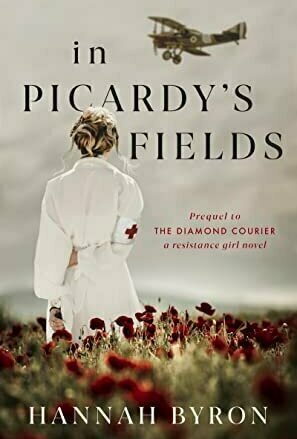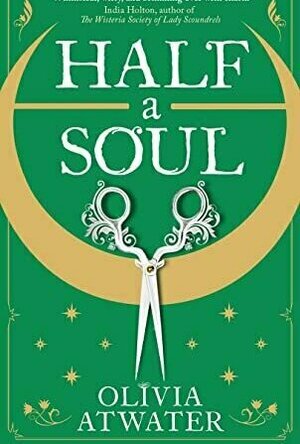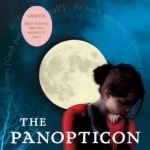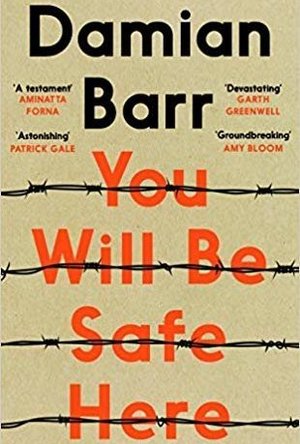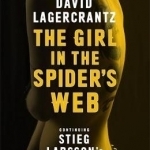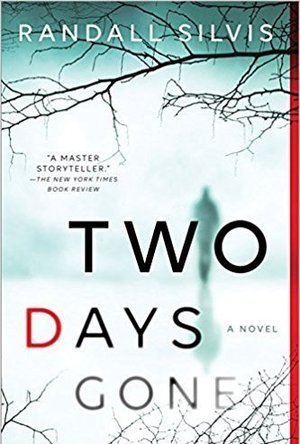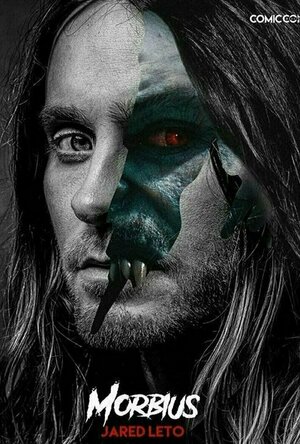Search
Hazel (1853 KP) rated In Picardy's Fields in Books
Nov 27, 2020
Told from two perspectives, In Picardy's Fields is the story of two brave young women during the First World War. Set mostly in France, the two women put gender stereotypes to one side to help the allied soldiers. Baroness Agnès de Saint-Aubin, a young surgeon from Paris, follows her teacher, Dr Alan Bell, to the Château de Dragoncourt on the front lines in Picardy to help her friends, Jacques and Elle de Dragoncourt care for the injured soldiers. Meanwhile, the youngest Dragoncourt child, Madeleine, is determined to escape from her finishing school in Switzerland to play her part in the war effort.
The author, Hannah Byron, accurately describes the devastation and dangers the characters faced both in Paris and at the front. Flowing seamlessly from scene to scene, Byron paints a dark picture of life in wartorn France at the same time as weaving a captivating story. Agnès is a reticent but strong woman, a stark contrast from the stuck-up Madeleine, used to getting her way. Yet both characters develop, forced to face horrifying circumstances. While Agnès becomes more confident, Madeleine uses her head-strong determination to secretly help the allied soldiers, even if it means putting herself in danger.
Whilst the war is the main feature of the novel, the author weaves themes of friendship and romance into the narrative. Although only two people narrate the story, In Picardy's Fields shows the importance of working together and putting aside prejudices. The undercurrent of a developing romance brings a sense of hope that everything will end happily, yet the reader also knows nothing is safe during wartime. With each turn of the page, disaster could befall the characters, which makes for a gripping read.
Hannah Byron admits she is not a medic or war expert, yet she undertook extensive research to make In Picardy's Fields as accurate as possible. She also confesses it is unlikely a female doctor went to the front lines, yet as a work of fiction, this does not matter, especially as Agnès's profession is key to the story.
Authors have written novels about the World Wars ad nauseum to the point that writing an original story seems impossible, but Hannah Byron proves this assumption wrong. In Picardy's Fields feels almost modern in some respects, despite being set in the 1910s, which adds a freshness to the story. These women, these characters are just like you and me, living in a time we could not possibly understand.
In Picardy's Fields is a fantastic debut novel and Hannah Byron is a writer to keep an eye on.
The author, Hannah Byron, accurately describes the devastation and dangers the characters faced both in Paris and at the front. Flowing seamlessly from scene to scene, Byron paints a dark picture of life in wartorn France at the same time as weaving a captivating story. Agnès is a reticent but strong woman, a stark contrast from the stuck-up Madeleine, used to getting her way. Yet both characters develop, forced to face horrifying circumstances. While Agnès becomes more confident, Madeleine uses her head-strong determination to secretly help the allied soldiers, even if it means putting herself in danger.
Whilst the war is the main feature of the novel, the author weaves themes of friendship and romance into the narrative. Although only two people narrate the story, In Picardy's Fields shows the importance of working together and putting aside prejudices. The undercurrent of a developing romance brings a sense of hope that everything will end happily, yet the reader also knows nothing is safe during wartime. With each turn of the page, disaster could befall the characters, which makes for a gripping read.
Hannah Byron admits she is not a medic or war expert, yet she undertook extensive research to make In Picardy's Fields as accurate as possible. She also confesses it is unlikely a female doctor went to the front lines, yet as a work of fiction, this does not matter, especially as Agnès's profession is key to the story.
Authors have written novels about the World Wars ad nauseum to the point that writing an original story seems impossible, but Hannah Byron proves this assumption wrong. In Picardy's Fields feels almost modern in some respects, despite being set in the 1910s, which adds a freshness to the story. These women, these characters are just like you and me, living in a time we could not possibly understand.
In Picardy's Fields is a fantastic debut novel and Hannah Byron is a writer to keep an eye on.
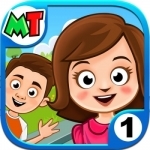
My Town : Home Doll House
Games and Education
App
Every thing is possible when you play the new My-Town : Home game. With lots of rooms to explore and...

Nursery Rhymes by ChuChu TV
Education and Entertainment
App
*** To have an AD FREE experience, please buy 5 premium videos. We’re happy to introduce a new...
Merissa (13730 KP) rated Half a Soul (Regency Faerie Tales #1) by Olivia Atwater in Books
May 26, 2022 (Updated Jun 13, 2023)
HALF A SOUL is the first book in the Regency Faerie Tales and I honestly can't wait to read more. This was a gentle story with some harsh life lessons for our main character when she learns what war and workhouses are really like in a world where magic exists.
She -- Dora -- sees life through a slightly skewed lens as it is, being a Faerie Lord stole half her soul when she was only a child. Since then, she struggles to feel emotions, apart from "long-tailed ones". Her cousin, Vanessa, is the only warmth in her life and she will do all she can to please her. This includes going to London, although Dora isn't sure if she is going to help Vanessa's chances of finding a husband, or if she is going because of Vanessa's scheme to cure Dora. Either way, they end up in London, with the ton, and Dora has her own adventures whilst Vanessa is at the mercy of the matchmaking mothers.
I found Dora to be a heart-warming character who is aware of her own 'strangeness' but tries her best to fit in to please her cousin. I loved how she was truthful and direct, at a time when it was not fashionable to be so. Elias was the perfect foil for her. She didn't accept his rudeness or be put off by his temper, simply because she wasn't affected by it. Albert, and his mother, Lady Caraway, were jewels in this book and I loved every scene they were in. I was so happy for him!
Rightly or wrongly, I enjoy historical fiction as it is written. I have no idea if the dip of the neckline or the length of the hem is one hundred per cent accurate, and I don't really care. And if it is historically incorrect, so what? So long as the story fits together, and the inconsistencies remain the same throughout (now there's an oxymoron for you), that's all that concerns me.
I loved this story as it guided me along, all coming together nicely at the end. The epilogue was perfect. I sincerely hope to see more of this couple in future books. A fantastic start to a new series by a new-to-me author and absolutely recommended!
** same worded review will appear elsewhere **
* A copy of this book was provided to me with no requirements for a review. I voluntarily read this book, and the comments here are my honest opinion. *
Merissa
Archaeolibrarian - I Dig Good Books!
May 26, 2022
She -- Dora -- sees life through a slightly skewed lens as it is, being a Faerie Lord stole half her soul when she was only a child. Since then, she struggles to feel emotions, apart from "long-tailed ones". Her cousin, Vanessa, is the only warmth in her life and she will do all she can to please her. This includes going to London, although Dora isn't sure if she is going to help Vanessa's chances of finding a husband, or if she is going because of Vanessa's scheme to cure Dora. Either way, they end up in London, with the ton, and Dora has her own adventures whilst Vanessa is at the mercy of the matchmaking mothers.
I found Dora to be a heart-warming character who is aware of her own 'strangeness' but tries her best to fit in to please her cousin. I loved how she was truthful and direct, at a time when it was not fashionable to be so. Elias was the perfect foil for her. She didn't accept his rudeness or be put off by his temper, simply because she wasn't affected by it. Albert, and his mother, Lady Caraway, were jewels in this book and I loved every scene they were in. I was so happy for him!
Rightly or wrongly, I enjoy historical fiction as it is written. I have no idea if the dip of the neckline or the length of the hem is one hundred per cent accurate, and I don't really care. And if it is historically incorrect, so what? So long as the story fits together, and the inconsistencies remain the same throughout (now there's an oxymoron for you), that's all that concerns me.
I loved this story as it guided me along, all coming together nicely at the end. The epilogue was perfect. I sincerely hope to see more of this couple in future books. A fantastic start to a new series by a new-to-me author and absolutely recommended!
** same worded review will appear elsewhere **
* A copy of this book was provided to me with no requirements for a review. I voluntarily read this book, and the comments here are my honest opinion. *
Merissa
Archaeolibrarian - I Dig Good Books!
May 26, 2022
Eilidh G Clark (177 KP) rated The Panopticon in Books
May 13, 2017
This is my all time favouurite book.
Jenny Fagan stated in an interview in 2013 that prior to writing the novel The Panopticon (2012) she had one question, ‘is it possible to achieve autonomy?’ Fagan explores this question throughout her novel with the character of Anais Hendrix. I would also suggest that the author is metaphorically exploring whether Scotland can achieve autonomy as an independent nation. Autonomy, in relation to the individual, is self-governance- or being able to decide for oneself
At the beginning of the novel, the fifteen-year old Anais is governed by the state. In contemporary British society, a child under the age of sixteen, regardless of her social situation is, by law, governed by an adult/s. Anais has lived her life in the care system with the exception of a short period in which she lived with an adopted mother. It is for this reason that she is able to see society from outside of the family unit. By creating the motherless child, Fagan presents Anais as the ‘other’ from both a societal perspective- ‘communities dinnae like no-ones,’ and from the viewpoint of the protagonist, ‘What they really want is me dead,’ (TP, p.23). Without a family, and through a lack of legitimate information regarding her birth mother, Anais believes that she was created in a lab:
I’M AN experiment. I always have been, It’s a given, a liberty, a fact. They watch me. Not just in school or social-work reviews, courts or police cells – they watch everywhere. […] They’re there when I stare too long or too clearly, without flinching. […] They watch me, I know it, and I can’t find anywhere any more – where they can’t see, (TP, Prologue).
Note that in the above quotation, the protagonist describes her assumed identity as a ‘liberty’. Liberty, in this case, means freedom from the oppressive nature of the family. Although Anais desires the nurturing aspect of the family, ‘I just want my mum,’ (Tp, p.269), her lack of family exposes her to the nature of contemporary society as a constant monitoring of civilians. In the above quotation, the repetition of ‘they’ suggests that she feels outside of the norm. The most important aspect of the above quote however, is that it is told from the protagonist’s thoughts. While Fagan gives Anais a certain amount of autonomy through both the first-person narrator, and the vernacular, the reliability of the narrator is increased by presenting the characters inner thoughts. While this limited autonomy is important, full autonomy is restricted by age. Bever suggests that ‘the capacity for individuals to become autonomous seems radically dependent on the contingent historical circumstances and societies into which they are born. Anais’ awareness of herself as the ‘other’ allows her an insight into the oppressive role of society, which is normally hindered in childhood due to the role of the family and it’s teaching of norms and values.
The sense of otherness can also be looked at in regard to Scotland and its role within the UK. The UK is a family of four countries under one state. Regardless of Scotland’s devolution, it has still to comply with a large amount of UK policies. Scotland has different values and goals to that of the UK making it ‘other’. With a different cultural identity to its neighbours, many Scottish citizens are seeking independence to protect its dwindling identity, whilst for others, independence is political.
Anais’ awareness of social control causes her a feeling of shrinking. This, according to her social workers is an identity problem:
Fifty odd moves, three different names, born in a nuthouse to a nobody that was never seen again. Identity problem? I dinnae have an identity problem – I dinnae have an identity, (TP, p.99).
Anais’ reaction in the above statement describes her lack of knowledge of her ancestry. I would argue that her identity is forced upon her from the fifty-one times that she has moved home, the care system, the solitary time in which she was adopted, the relationships she has had - both female and male, her friends but more importantly, from the unreliable account of her birth from the monk in the metal institution. The lack of family does not alter the fact that she is alive, and that all the fragments of her past make up an identity. For Anais, ‘Families are overrated […] ‘I umnay fooled. Not by families,’(TP, p.63-64). Like Anais, Scotland’s identity is ambiguous. Independence will allow Scotland political autonomy, however, within a global economy, Scotland still has limited autonomy. As culturally ‘other’ however, Scotland has already achieved autonomy with or without a state through its language, its people and its traditions.
Fagan demonstrates the difficulty of total autonomy though Anais and the birthday game, a game in which she creates her own identity. When she turns sixteen years of age, Anais is free from societal care and flees from her imprisonment, ‘I am Frances Jones from Paris. I am not a face on a missing-person poster, I am not a number or a statistic in a file. I have no-one watching me, […] I−begin today,’ (TP, p.323-324). ‘I’ suggests singularity and is still opposite to ‘them’ or ‘we’. Autonomy is therefore, ambiguous; Anais is still living within the same system under a false identity, she is therefore, segregated from everyone that she knows. Moreover, by changing Anais’ name to a name that ‘means freedom.’ (TP, p.323), Fagan is pointing out the difference between freedom and autonomy. Freedom is an emotive word, and there are two concepts of freedom – freedom from, which in Anais’ situation means freedom from the system of observation. Freedom to, however, is more problematic as Anais can never be free from the neoliberal system of rules and law – as Scotland would see in the case of independence. I would therefore conclude that Anais/Scotland has always has limited autonomy through cultural identity and history. I believe autonomy can only reside within the system through cultural and individual imagination and not out with it.
What does this mean for Scotland? If Scotland is part of the global community, can it become an autonomous nation? Is there a solution or should Anais/Scotland accept that cultural autonomy is imagined or self-contained. Can a collective identity and imagination change the political system? Finally, can culture survive without independence?
Bibliography
Crupp, Tyler, ‘Autonomy and Contemporary Political Theory’, in Encyclopaedia of Political Theory, ed. Mark Bevor (London: Sage Publications, 2010)
Fagan, Jenni, The Panopticon (London: Windmill Books, 2013), p.6.
Windmill Books. (2013). Granta Best Young British Novelist Jenni Fagan, . accessed 22 November 2015. Published on Apr 16, 2013
At the beginning of the novel, the fifteen-year old Anais is governed by the state. In contemporary British society, a child under the age of sixteen, regardless of her social situation is, by law, governed by an adult/s. Anais has lived her life in the care system with the exception of a short period in which she lived with an adopted mother. It is for this reason that she is able to see society from outside of the family unit. By creating the motherless child, Fagan presents Anais as the ‘other’ from both a societal perspective- ‘communities dinnae like no-ones,’ and from the viewpoint of the protagonist, ‘What they really want is me dead,’ (TP, p.23). Without a family, and through a lack of legitimate information regarding her birth mother, Anais believes that she was created in a lab:
I’M AN experiment. I always have been, It’s a given, a liberty, a fact. They watch me. Not just in school or social-work reviews, courts or police cells – they watch everywhere. […] They’re there when I stare too long or too clearly, without flinching. […] They watch me, I know it, and I can’t find anywhere any more – where they can’t see, (TP, Prologue).
Note that in the above quotation, the protagonist describes her assumed identity as a ‘liberty’. Liberty, in this case, means freedom from the oppressive nature of the family. Although Anais desires the nurturing aspect of the family, ‘I just want my mum,’ (Tp, p.269), her lack of family exposes her to the nature of contemporary society as a constant monitoring of civilians. In the above quotation, the repetition of ‘they’ suggests that she feels outside of the norm. The most important aspect of the above quote however, is that it is told from the protagonist’s thoughts. While Fagan gives Anais a certain amount of autonomy through both the first-person narrator, and the vernacular, the reliability of the narrator is increased by presenting the characters inner thoughts. While this limited autonomy is important, full autonomy is restricted by age. Bever suggests that ‘the capacity for individuals to become autonomous seems radically dependent on the contingent historical circumstances and societies into which they are born. Anais’ awareness of herself as the ‘other’ allows her an insight into the oppressive role of society, which is normally hindered in childhood due to the role of the family and it’s teaching of norms and values.
The sense of otherness can also be looked at in regard to Scotland and its role within the UK. The UK is a family of four countries under one state. Regardless of Scotland’s devolution, it has still to comply with a large amount of UK policies. Scotland has different values and goals to that of the UK making it ‘other’. With a different cultural identity to its neighbours, many Scottish citizens are seeking independence to protect its dwindling identity, whilst for others, independence is political.
Anais’ awareness of social control causes her a feeling of shrinking. This, according to her social workers is an identity problem:
Fifty odd moves, three different names, born in a nuthouse to a nobody that was never seen again. Identity problem? I dinnae have an identity problem – I dinnae have an identity, (TP, p.99).
Anais’ reaction in the above statement describes her lack of knowledge of her ancestry. I would argue that her identity is forced upon her from the fifty-one times that she has moved home, the care system, the solitary time in which she was adopted, the relationships she has had - both female and male, her friends but more importantly, from the unreliable account of her birth from the monk in the metal institution. The lack of family does not alter the fact that she is alive, and that all the fragments of her past make up an identity. For Anais, ‘Families are overrated […] ‘I umnay fooled. Not by families,’(TP, p.63-64). Like Anais, Scotland’s identity is ambiguous. Independence will allow Scotland political autonomy, however, within a global economy, Scotland still has limited autonomy. As culturally ‘other’ however, Scotland has already achieved autonomy with or without a state through its language, its people and its traditions.
Fagan demonstrates the difficulty of total autonomy though Anais and the birthday game, a game in which she creates her own identity. When she turns sixteen years of age, Anais is free from societal care and flees from her imprisonment, ‘I am Frances Jones from Paris. I am not a face on a missing-person poster, I am not a number or a statistic in a file. I have no-one watching me, […] I−begin today,’ (TP, p.323-324). ‘I’ suggests singularity and is still opposite to ‘them’ or ‘we’. Autonomy is therefore, ambiguous; Anais is still living within the same system under a false identity, she is therefore, segregated from everyone that she knows. Moreover, by changing Anais’ name to a name that ‘means freedom.’ (TP, p.323), Fagan is pointing out the difference between freedom and autonomy. Freedom is an emotive word, and there are two concepts of freedom – freedom from, which in Anais’ situation means freedom from the system of observation. Freedom to, however, is more problematic as Anais can never be free from the neoliberal system of rules and law – as Scotland would see in the case of independence. I would therefore conclude that Anais/Scotland has always has limited autonomy through cultural identity and history. I believe autonomy can only reside within the system through cultural and individual imagination and not out with it.
What does this mean for Scotland? If Scotland is part of the global community, can it become an autonomous nation? Is there a solution or should Anais/Scotland accept that cultural autonomy is imagined or self-contained. Can a collective identity and imagination change the political system? Finally, can culture survive without independence?
Bibliography
Crupp, Tyler, ‘Autonomy and Contemporary Political Theory’, in Encyclopaedia of Political Theory, ed. Mark Bevor (London: Sage Publications, 2010)
Fagan, Jenni, The Panopticon (London: Windmill Books, 2013), p.6.
Windmill Books. (2013). Granta Best Young British Novelist Jenni Fagan, . accessed 22 November 2015. Published on Apr 16, 2013
ClareR (6059 KP) rated You Will Be Safe Here in Books
May 12, 2019
History that affects the present.
At first glance, you would wonder why this book starts off in a South African concentration camp in 1901, and then goes on to follow a boy whose parents pay for him to go to the New Dawn Safari Training Camp. It does become clear: the title tells us what the British army said to the women and children as they entered Bloemfontein, and what Willem and his parents are told before he goes to New Dawn. They are all lied to.
My dad told me about the concentration camps during the Boer war as I went off to study German at university. He’d read about the history part of the course I’d be studying, and WW2 was missing. He thought it important that I should know that the National Socialists had got all of their ‘best’ ideas from the British (“everyone should shoulder their share of guilt”). I admit I didn’t know this much detail though.
The descriptions in this book are heartbreaking. Cruelty disguised as safe-keeping. New Dawn is cruelty disguised as (re)education. As I attempted to empathise with Will’s mother, I couldn’t help but judge her - how could a mother NOT protect her child? How could she be so easily influenced to give him to someone else to ‘make him a man’? She thinks that this IS protecting him though. The world is a harsh place, and those who are different are not always accepted by their peers (I have two sons, one of whom is disabled. I’ve always worried about how he will be accepted by other children - unfounded worries so far, as it turns out.).
The old adage ‘cruel to be kind’ is just that though: old, outdated. The new world order should be about tolerance and understanding, something that is totally lacking in some of the characters of this book (and out in the real world, too). ADHD is NEVER cured with cruelty. Respect is never gained through starvation and deprivation.
This book is written with such care and understanding: I could imagine the sights and sounds of both camps, smell the cigarette smoke of Willem’s grandmother. I felt so much for Sarah van der Watt and her son and Willem. People put into impossible circumstances. The way we find out about what happens to Sarah and her son is devastating: Willem and his class visit Bloemfontein concentration camp, and Fredericks story is part of their history lesson. This was so cleverly done, and although seemingly detached by the years that had passed, its only one hundred pages or so for the reader.
This is such a moving story, and it shows that history really can affect the present day. I can’t recommend reading this book enough.
My dad told me about the concentration camps during the Boer war as I went off to study German at university. He’d read about the history part of the course I’d be studying, and WW2 was missing. He thought it important that I should know that the National Socialists had got all of their ‘best’ ideas from the British (“everyone should shoulder their share of guilt”). I admit I didn’t know this much detail though.
The descriptions in this book are heartbreaking. Cruelty disguised as safe-keeping. New Dawn is cruelty disguised as (re)education. As I attempted to empathise with Will’s mother, I couldn’t help but judge her - how could a mother NOT protect her child? How could she be so easily influenced to give him to someone else to ‘make him a man’? She thinks that this IS protecting him though. The world is a harsh place, and those who are different are not always accepted by their peers (I have two sons, one of whom is disabled. I’ve always worried about how he will be accepted by other children - unfounded worries so far, as it turns out.).
The old adage ‘cruel to be kind’ is just that though: old, outdated. The new world order should be about tolerance and understanding, something that is totally lacking in some of the characters of this book (and out in the real world, too). ADHD is NEVER cured with cruelty. Respect is never gained through starvation and deprivation.
This book is written with such care and understanding: I could imagine the sights and sounds of both camps, smell the cigarette smoke of Willem’s grandmother. I felt so much for Sarah van der Watt and her son and Willem. People put into impossible circumstances. The way we find out about what happens to Sarah and her son is devastating: Willem and his class visit Bloemfontein concentration camp, and Fredericks story is part of their history lesson. This was so cleverly done, and although seemingly detached by the years that had passed, its only one hundred pages or so for the reader.
This is such a moving story, and it shows that history really can affect the present day. I can’t recommend reading this book enough.
Kristy H (1252 KP) rated The Girl in the Spider's Web: Continuing Stieg Larsson's Millennium Series in Books
Feb 13, 2018
This book picks up, time-wise, after the last of Stieg Larsson's Millennium books ended. Mikael Blomkvist is struggling - his career is being debated in the press and his beloved Millennium magazine is floundering. He receives a tip from a source about a story. Mikael reluctantly follows up, but becomes more intrigued when it sounds like the story might involve Lisbeth Salander. Mikael immediately gets sucked into a plot of intrigue with implications far beyond his greatest expectations.
I was hesitant to read this novel, knowing the fights between Larsson's girlfriend and his family over his material. Eventually, I chose to read it, as I think of Blomkvist and Salander as dear friends and it was difficult to pass up the chance to continue to read further about their lives. I think Lagercrantz does a good job picking up with the material. No one can fill Larsson's shoes, in any way, but he does an excellent job of staying true to the characters and creating a highly suspenseful and interesting tale.
It's apparent you're not reading a Larsson novel at times - the plot is almost too quickly paced, versus Larsson's meandering writing. Lagercrantz goes into a lot of backstory, which is very interesting, but did leave me wondering how much was "true" (hard to leave behind the whole author dispute at times). But mostly, the plot was so well paced and well-written and Blomkvist seemed so like himself, that I just found myself immersed in the story. The story flips between Sweden and the USA -- bringing in an element of the NSA -- and it's exciting and fun. Lagercrantz does a strong job of bringing the series into the present day with this plotline. He also writes about an autistic child, August, so clearly, that you just find yourself rooting for the kid.
Blomkvist, as I mentioned, seems much his usual self. I love him so, so it was a little easier to overlook the lack of Lisbeth in this novel, but I do have to point it out - there's definitely not as much Lisbeth as one might want. She's around, of course, and amazing and strong (of course!), but you'll find yourself wishing for more Lisbeth scenes.
Finally, the end left me wishing for more in the series, so I figure that's a sign Lagercrantz did his job well, despite all the tumult associated with the book. I appreciate the care he took with Lisbeth and Blomkvist, and I was glad to spend some time with them again. I have to admit - I hope they'll be back. In the meantime, it was fun to catch up with them again.
I was hesitant to read this novel, knowing the fights between Larsson's girlfriend and his family over his material. Eventually, I chose to read it, as I think of Blomkvist and Salander as dear friends and it was difficult to pass up the chance to continue to read further about their lives. I think Lagercrantz does a good job picking up with the material. No one can fill Larsson's shoes, in any way, but he does an excellent job of staying true to the characters and creating a highly suspenseful and interesting tale.
It's apparent you're not reading a Larsson novel at times - the plot is almost too quickly paced, versus Larsson's meandering writing. Lagercrantz goes into a lot of backstory, which is very interesting, but did leave me wondering how much was "true" (hard to leave behind the whole author dispute at times). But mostly, the plot was so well paced and well-written and Blomkvist seemed so like himself, that I just found myself immersed in the story. The story flips between Sweden and the USA -- bringing in an element of the NSA -- and it's exciting and fun. Lagercrantz does a strong job of bringing the series into the present day with this plotline. He also writes about an autistic child, August, so clearly, that you just find yourself rooting for the kid.
Blomkvist, as I mentioned, seems much his usual self. I love him so, so it was a little easier to overlook the lack of Lisbeth in this novel, but I do have to point it out - there's definitely not as much Lisbeth as one might want. She's around, of course, and amazing and strong (of course!), but you'll find yourself wishing for more Lisbeth scenes.
Finally, the end left me wishing for more in the series, so I figure that's a sign Lagercrantz did his job well, despite all the tumult associated with the book. I appreciate the care he took with Lisbeth and Blomkvist, and I was glad to spend some time with them again. I have to admit - I hope they'll be back. In the meantime, it was fun to catch up with them again.
Zuky the BookBum (15 KP) rated Two Days Gone (Ryan DeMarco Mystery #1) in Books
Mar 15, 2018
Also read my review here: http://bookbum.weebly.com/book-reviews/two-days-gone-by-randall-silvis
NOW AVAILABLE!
<i><b>But doesnt every guilty man hide his deeds behind his words and hide his thoughts behind his smile?</i></b>
This was perfectly set up to be a great novel, but unfortunately, like so many novel nowadays, it instead failed to excite and thrill me, and in the end, turned into an extremely mediocre read.
It wasnt until around 70% of the way through this book that I realised how dislikable DeMarco, our supposed hero, was. His anger and grief was completely understandable after the loss of his wife and child, but I felt he was unnecessarily unkind to his peers and overly passive aggressive in general. <spoiler>Plus can we talk about how much of a shitty cop he was? Getting into a car with a bleeding out dead body to chase an armed, highly fragile man and not alerting anyone? <b>Murdering</b> the main suspect on a case just because he could? Only in fiction.</spoiler>However, out of our two main characters, I was happy to read more about DeMarco than Thomas. I found Thomas PoV to be slow and a little pointless. Again, I understood his anguish and shame etc, but I guess I just couldnt connect to his character and summon up the right emotions to care about his story that much.
This was a slow read for me, but I kept pushing through it because: 1) it wasnt <i>that</i> bad and 2) I was led to believe, by some other reviews, that an amazing twist was going to be revealed. <i>Unfortunately,</i> we got the amazing twist and my reaction was more of an oh than a whoa!! <spoiler>I guess I wanted to the book to feel more realistic, I wanted some innate human darkness to be the cause of the murders, I didnt want a book about revenge.</spoiler> The plot, overall, wasnt too bad, there were some exciting moments, but for the most part this could only just hold my interest.
<i>Two Days Gone</i> didnt grab my attention well enough for me to rate it anything higher than 3 stars. It was an average story, with average characters and an average plot twist. Its a shame because had high hopes for this one, but nevermind, you win some, you lose some. I see Amazon have specified this as a Ryan DeMarco novel so Im assuming we may be seeing a series come out from Silvis, but I wont be keeping up with it.
Thanks to Netgalley and Sourcebooks Landmark for giving me the opportunity to read this in exchange for an honest review.
NOW AVAILABLE!
<i><b>But doesnt every guilty man hide his deeds behind his words and hide his thoughts behind his smile?</i></b>
This was perfectly set up to be a great novel, but unfortunately, like so many novel nowadays, it instead failed to excite and thrill me, and in the end, turned into an extremely mediocre read.
It wasnt until around 70% of the way through this book that I realised how dislikable DeMarco, our supposed hero, was. His anger and grief was completely understandable after the loss of his wife and child, but I felt he was unnecessarily unkind to his peers and overly passive aggressive in general. <spoiler>Plus can we talk about how much of a shitty cop he was? Getting into a car with a bleeding out dead body to chase an armed, highly fragile man and not alerting anyone? <b>Murdering</b> the main suspect on a case just because he could? Only in fiction.</spoiler>However, out of our two main characters, I was happy to read more about DeMarco than Thomas. I found Thomas PoV to be slow and a little pointless. Again, I understood his anguish and shame etc, but I guess I just couldnt connect to his character and summon up the right emotions to care about his story that much.
This was a slow read for me, but I kept pushing through it because: 1) it wasnt <i>that</i> bad and 2) I was led to believe, by some other reviews, that an amazing twist was going to be revealed. <i>Unfortunately,</i> we got the amazing twist and my reaction was more of an oh than a whoa!! <spoiler>I guess I wanted to the book to feel more realistic, I wanted some innate human darkness to be the cause of the murders, I didnt want a book about revenge.</spoiler> The plot, overall, wasnt too bad, there were some exciting moments, but for the most part this could only just hold my interest.
<i>Two Days Gone</i> didnt grab my attention well enough for me to rate it anything higher than 3 stars. It was an average story, with average characters and an average plot twist. Its a shame because had high hopes for this one, but nevermind, you win some, you lose some. I see Amazon have specified this as a Ryan DeMarco novel so Im assuming we may be seeing a series come out from Silvis, but I wont be keeping up with it.
Thanks to Netgalley and Sourcebooks Landmark for giving me the opportunity to read this in exchange for an honest review.
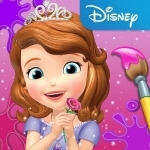
Sofia the First Color and Play
Entertainment and Book
App
Now available in: German, French, Italian, Castilian Spanish, Swedish, Norwegian, Danish, Polish and...
Gareth von Kallenbach (980 KP) rated Morbius (2022) in Movies
Apr 5, 2022
The latest Marvel offering is Morbius. Michael Morbius (Jared Leto) grew up in Greece under the care of Dr.Emil Nikols (Jared Harris). In this universe, Emil is Michael’s Mentor. This story takes
bits from the comic book but it clearly isn’t canon. It is an adequate anti-hero origin story for Phase 4 which gives us the backstory of Morbius’ creation.
Morbius has a rare blood disease. As a child, he made his best friend Milo/Lucien (Matt Smith), a promise to find the cure for their shared illness. Michael, in his quest for the cure, became the youngest scientist to win the Nobel Prize from his development of artificial blood.
He works with fellow scientist Martine Bancroft (Adria Arjona) who becomes his love interest.
Morbius has been working on vampire bats and the abilities within their blood. Once the formula has stabilized, he begins human trials on himself. In doing so, the serum that he has developed transforms him into a vampire that needs human blood to sustain his existence.
The film seems to have dropped the trail to lead the audience to logical conclusions. There are questions that need to be answered which would help flesh out the actions of the characters.
Why the serum, if the reason is to create a cure, why did the bat and human combination mutate instead of the blood changing?
There are points throughout the film that feel like critical explanatory lines were edited out.
Some scenes had witty banter between Michael and Milo. It would have been good to see Morbius enjoy his transformation from his weak, ill state to the Vampire.
The film was good. It definitely could have been better with more information. I wanted to understand motivation by the actors indicating motive or have red herrings thrown through the film.
The best parts for me were the moments where he stumbled upon his new abilities. He observes them like the scientist he is and takes it as data, in order to understand the changes.
The CGI was muddy, in trying to show movement as quick. What it looked like was trying to
convey speed, but in doing so, ended up having what showed up as squiggly lines instead.
I liked it, but didn’t love it mainly for what it seemed to lack, continuity. I think for an origin film, the character needs to be brought out as clean as possible in order to develop solid character traits.
If you go see the movie, there are two end credit scenes. There are a couple situations that you go see the movie, there are two end credit scenes. There are a couple situations that lead into the Multiverse of Magic. I am definitely looking forward to that film.
3 stars out of 5
bits from the comic book but it clearly isn’t canon. It is an adequate anti-hero origin story for Phase 4 which gives us the backstory of Morbius’ creation.
Morbius has a rare blood disease. As a child, he made his best friend Milo/Lucien (Matt Smith), a promise to find the cure for their shared illness. Michael, in his quest for the cure, became the youngest scientist to win the Nobel Prize from his development of artificial blood.
He works with fellow scientist Martine Bancroft (Adria Arjona) who becomes his love interest.
Morbius has been working on vampire bats and the abilities within their blood. Once the formula has stabilized, he begins human trials on himself. In doing so, the serum that he has developed transforms him into a vampire that needs human blood to sustain his existence.
The film seems to have dropped the trail to lead the audience to logical conclusions. There are questions that need to be answered which would help flesh out the actions of the characters.
Why the serum, if the reason is to create a cure, why did the bat and human combination mutate instead of the blood changing?
There are points throughout the film that feel like critical explanatory lines were edited out.
Some scenes had witty banter between Michael and Milo. It would have been good to see Morbius enjoy his transformation from his weak, ill state to the Vampire.
The film was good. It definitely could have been better with more information. I wanted to understand motivation by the actors indicating motive or have red herrings thrown through the film.
The best parts for me were the moments where he stumbled upon his new abilities. He observes them like the scientist he is and takes it as data, in order to understand the changes.
The CGI was muddy, in trying to show movement as quick. What it looked like was trying to
convey speed, but in doing so, ended up having what showed up as squiggly lines instead.
I liked it, but didn’t love it mainly for what it seemed to lack, continuity. I think for an origin film, the character needs to be brought out as clean as possible in order to develop solid character traits.
If you go see the movie, there are two end credit scenes. There are a couple situations that you go see the movie, there are two end credit scenes. There are a couple situations that lead into the Multiverse of Magic. I am definitely looking forward to that film.
3 stars out of 5
